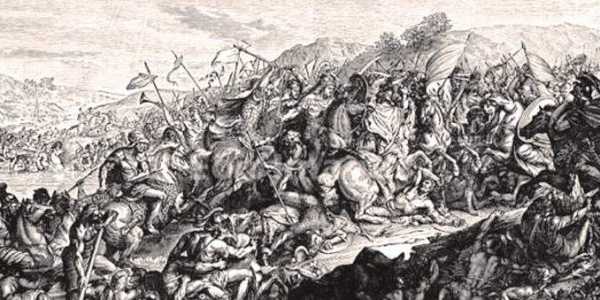
nuclear war
War, in its most ruthless and destructive forms, has been a persistent aspect of human history. While its extensive suffering is widely acknowledged, some contend that war can bring about peace by resolving disputes, eliminating oppressive governments, or creating new political structures. However, this viewpoint is debatable. The consequences of war frequently result in cycles of violence, instability, and unresolved issues, raising the question of whether war genuinely leads to peace.
A war that brings peace:
Supporters often point to World War II as a key example. The defeat of the Axis powers—Nazi Germany, Imperial Japan, and Fascist Italy—led to the elimination of oppressive regimes and the establishment of new political frameworks. In both Germany and Italy, democratic governments supplanted fascist regimes, while Japan adopted a pacifist constitution following its defeat.
Furthermore, World War II resulted in the formation of international organizations like the United Nations, which aim to prevent future global conflicts. In the years following the war, systems such as Bretton Woods and the Marshall Plan emerged, aiding in the reconstruction of Europe and promoting long-term stability. Some argue that despite the tragic toll, the war served as a catalyst for a more democratic global order.
Another point to consider is that war can foster national unity. During wartime, various groups often come together to confront a shared adversary, creating a sense of temporary social cohesion. For instance, in World War II, the nations embroiled in the conflict put aside their internal disagreements to combat fascism.
Counterpoint:
War as a cycle of violence
Despite the arguments supporting war as a means to achieve peace, history demonstrates that warfare frequently leads to greater instability. The conclusion of a conflict does not necessarily result in enduring peace. In many instances, the consequences of war perpetuate cycles of violence and unresolved political issues, which can trigger further conflict.
Take the Treaty of Versailles, which concluded World War I. While this treaty officially brought the war to a close, its stringent conditions resulted in economic difficulties and political turmoil in Germany, breeding resentment and paving the way for Adolf Hitler’s rise. This ultimately contributed to World War II and illustrated how the consequences of one conflict can lay the groundwork for another.
In many ongoing conflicts, such as those in the Middle East and sub-Saharan Africa, the aftermath of warfare often results in power vacuums, insurgencies, and the emergence of extremist factions. For instance, the conflict in Iraq has contributed to heightened instability in the region, demonstrating that war tends to foster violence and suffering rather than establish peace. Additionally, the psychological and social wounds inflicted by war can sustain ongoing violence. Displaced communities, veterans, and survivors grapple with trauma, while the shared memory of war frequently breeds resentment and a desire for revenge, hindering genuine reconciliation. The persistent impacts of civil wars in regions like Rwanda and Bosnia illustrate how the consequences of conflict can endure well beyond the cessation of hostilities.
Genuine Peace: More Than Merely EndingWar
To determine if war leads to peace, it’s important to define what “peace” truly signifies. Genuine peace goes beyond simply not having violence; it encompasses justice, reconciliation, and tackling the underlying issues that fuel conflict, such as inequality, oppression, and political or ethnic tensions. Without addressing these factors, the end of war may result in a temporary and unstable peace.
For lasting peace, diplomatic initiatives, justice, and the rebuilding of communities are essential. A notable example is post-apartheid South Africa, which illustrates how reconciliation and justice can create enduring peace after prolonged violence. Conversely, conflicts that do not incorporate restorative measures often lead to increased instability.
Final thoughts:
In summary, while war may resolve certain disputes, it frequently exacerbates the conditions that obstruct lasting peace. The aftermath of war inflicts deep physical, social, and psychological scars, making genuine reconciliation challenging. Although war may momentarily halt violence, it does not inherently yield justice or stability. True peace is characterized not just by the absence of war, but by the presence of justice and proactive measures to eliminate the root causes of conflict. As such, war, despite occasionally resulting in short-lived peace, cannot be seen as a viable route to enduring peace.
By: Anurag
Write and Win: Participate in Creative writing Contest & International Essay Contest and win fabulous prizes.


